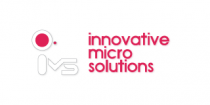69 Percent of Healthcare C-suite Say Improving the Consumer Experience is a Top 2019 Priority
BALTIMORE, July 10, 2019 /PRNewswire/ -- Sage Growth Partners (SGP), a Baltimore-based healthcare research, strategy, and marketing firm, today announced new survey findings related to the strategies healthcare leaders are using to improve the healthcare consumer experience. The survey of hospital C-suite executives,* commissioned by Docent Health, a healthcare experience and patient navigation company, also explored which strategies are most effective.
Access the full report here. Key findings include:
The healthcare consumer experience is a growing priority for healthcare executives
-- Sixty-nine percent of respondents said improving the healthcare consumer
experience is their organization's first or second top strategic
priority in 2019.
-- Respondents from highly competitive markets were more likely to say it
is a top priority (55 percent).
-- Only 2 percent of respondents in highly competitive markets said it
isn't among their top four priorities.
Common improvement initiatives include staffing changes, technology, and patient navigation
-- To improve the consumer experience, organizations are using an array of
technology, including telephone calls (93 percent), EHRs (90 percent),
patient portals (83 percent)
-- Only 35 percent report using a centralized customer relationship
management (CRM) platform, and only 39 percent report using text
messaging.
-- Seventy percent say they have implemented additional staff and physician
training to help them better interact with patients.
-- Thirty-two percent have a dedicated C-suite executive (such as a chief
experience officer) whose sole role is improving the healthcare consumer
experience.
-- Patient navigation programs are used by more than half of respondents
(57 percent). This is much higher among those who said the healthcare
consumer experience is a top 2019 strategic priority (69 percent).
Respondents report significant benefits from navigation programs
-- The top benefits of these programs include improved quality outcomes (67
percent of respondents cited this benefit), improved patient engagement
(67 percent), improved patient adherence to care plans (65 percent), and
improved patient retention (54 percent).
-- The top three service lines in which respondents are using patient
navigation programs are oncology (68 percent), orthopedics (53 percent),
and cardiology (42 percent).
-- Though 43 percent of respondents do not yet have a patient engagement
program, a third of those (33 percent) plan to implement one in the next
one to two years.
-- The top ranked reasons why organizations are considering a patient
navigation program include to improve patient engagement (No. 1),
improve patient adherence to care plans (No. 2), reduce unnecessary
utilization - readmissions (No. 3), and improve patient retention (No.
4).
High-value navigation programs are using nonclinical navigators, and are investing in scalability and technology
-- Eighty-one percent of respondents with patient navigation programs said
most of their navigators have clinical backgrounds. However, the survey
findings indicate nonclinical navigators are more effective. Of those
who said most of their navigators were nonclinical, 91 percent reported
improved patient engagement, vs. only 61 percent of those with mostly
clinical navigators. This pattern was clear across other outcomes
including patient retention and acquisition.
-- Sixty percent said their patient navigation program is scalable across
the enterprise; these respondents reported higher benefits across the
board than the 40 percent who said their program is not scalable,
including improved patient adherence to care plans (68 percent for those
with scalable programs vs. 61 percent for those without) and improved
patient engagement (68 percent vs. 65 percent).
-- Relationship management technology is a key enabler; survey respondents
who said they have a patient navigation program and also use a CRM
(about 50 percent of those with navigation programs) reported more
positive outcomes across the board, including improved patient retention
(69 percent with CRM vs. 39 percent without) and reduced unnecessary
utilization - ED visits (52 percent vs. 46 percent).
"Across the industry, provider organizations are seeing that in order to remain competitive, they need to deliver more patient-centered experiences to their consumers," said Paul Roscoe, Docent Health's CEO. "While the survey findings show that most respondents recognize how critical this is, it was surprising to see that a significant portion haven't taken programmatic action. Provider organizations will need to adopt enterprise-wide initiatives like patient navigation programs and relationship management technology in order to effectively support personalized outreach for consumers throughout the continuum of care. "
*Methodology
Sage Growth Partners was commissioned by Docent Health to survey 100 healthcare C-suite executives from hospitals across the country in Q1 2019, including CEOs (22 percent), COOs (20 percent), CNOs (12 percent), chief quality officers (9 percent), and CMOs (7 percent). Respondents also included chief strategy officers, chief transformation officers, chief experience officers, and chief innovation officers. About half of respondents (54 percent) were from community hospitals; 20 percent were from short-term acute care settings. Other organization types included specialty hospitals, children's hospitals, rehabilitation hospitals, and psychiatric hospitals. Sixty-four percent of respondents reported being in highly competitive markets, 33 percent were in moderately competitive markets, and 3 percent were in non-competitive markets.
About Sage Growth Partners
Sage Growth Partners accelerates commercial success for healthcare organizations through a singular focus on growth. The company helps its clients thrive amid the complexities of a rapidly changing marketplace with deep domain expertise and an integrated application of research, strategy, and marketing.
Founded in 2005, Sage Growth Partners is located in Baltimore, MD and serves clients such as Philips Healthcare, Quest Diagnostics, Launchpoint, Ingenious Med, and ArborMetrix. Visit us online at www.sage-growth.com.
About Docent Health
Docent Health is a healthcare experience company that helps organizations truly embrace and deliver a consumer-centric approach to healthcare. Docent's tech-enabled service combines digital and human interactions to guide patients and accommodate their specific needs and preferences. With Docent, health systems can provide differentiated, empathetic services to their patients and referring providers, becoming a preferred destination for care and empathy. For more information, visit www.docenthealth.com or follow us on Twitter and LinkedIn.
Media Contact
Vanessa Ulrich
(410) 534.1161
vulrich@sage-growth.com
View original content to download multimedia:http://www.prnewswire.com/news-releases/69-percent-of-healthcare-c-suite-say-improving-the-consumer-experience-is-a-top-2019-priority-300881859.html
SOURCE Sage Growth Partners




